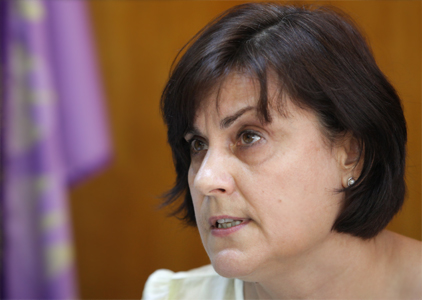Cost of living in Bulgaria has been going up over the past months and the poverty of the majority of people has been boosting, a report of the Confederation of Independent Trade Unions in Bulgaria /CITUB/ shows. ‘Incomes and any possibilities for their increasing – this is the top subject for this society right now,’ said trade union leader Plamen Dimitrov after a meeting at PM Boyko Borissov’s. The need for stimuli for education and training of young Bulgarians were the second major subject, in Dimitrov’s words. According to a foreign research on labor productivity, Bulgaria is ranked among the first under that criterion. Great Britain, Finland and Denmark hit the bottom, but their employees receive much higher income than the production made. It turns out that the developing economies of Eastern Europe are pulling up the EU’s economic growth. In Bulgaria this is at the expense of the workers, the trade union experts claim and estimate that the latter receive barely EUR 0.11 to their wage for each EUR 0.50 of added value – both in agriculture and industry and services. The unfair labor – capital ratio within the EU is higher in Bulgaria, Poland and Romania, data shows.
 More from Violeta Ivanova, CITUB:
More from Violeta Ivanova, CITUB:
"The results show that EUR 1,143 are needed for the maintenance of a family of four – two parents and two kids. With these means this household has the opportunity to cover their expenses for food, school, health, housing and rest. The sum follows the average standard in Bulgaria. This means that each of the salary of both working parents should be no less than EUR 572, in order for the expenses of the other non-working members of the family to be covered."
Household needs and food form the major expenses of the average Bulgarian – some 60% of the consumer basket of each family.
Compared to a decade ago, we see that this maintenance has gone up by 25%, or more than EUR 200,’Plamen Dimitrov says and adds:
 "Division and inequalities have been growing in this country. The wage income hasn’t been increased in an equal manner for all employees. Those with the highest income see the increasing of their salaries, while the poor ones see exactly the opposite. This leads to a deepening of the social polarization – the rich are getting richer and the poor are getting poorer. A poll of the National Statistical Institute shows that only 30% of the Bulgarians receive more than the average wage for the country. That is why, when we say that this average is EUR 500, we must bear in mind that 70% of the people receive less. Incomes in Sofia are different than the across country. The average salary is EUR 685, on some EUR 410 for the rest of the state. It is alarming that 2.5 mln. Bulgarians live under the official poverty threshold of EUR 155, or 1/3 of the households. 1.5 mln. of those are retired and the other 1 mln. consists of unemployed, lonely moms and working poor people. Only 22% of the households receive normal incomes – over EUR 285 per capita. Few of these people afford to have savings. In my opinion that person who says that the Bulgarian now prefers to save than to spend money, says true nonsense," Plamen Dimitrov concludes.
"Division and inequalities have been growing in this country. The wage income hasn’t been increased in an equal manner for all employees. Those with the highest income see the increasing of their salaries, while the poor ones see exactly the opposite. This leads to a deepening of the social polarization – the rich are getting richer and the poor are getting poorer. A poll of the National Statistical Institute shows that only 30% of the Bulgarians receive more than the average wage for the country. That is why, when we say that this average is EUR 500, we must bear in mind that 70% of the people receive less. Incomes in Sofia are different than the across country. The average salary is EUR 685, on some EUR 410 for the rest of the state. It is alarming that 2.5 mln. Bulgarians live under the official poverty threshold of EUR 155, or 1/3 of the households. 1.5 mln. of those are retired and the other 1 mln. consists of unemployed, lonely moms and working poor people. Only 22% of the households receive normal incomes – over EUR 285 per capita. Few of these people afford to have savings. In my opinion that person who says that the Bulgarian now prefers to save than to spend money, says true nonsense," Plamen Dimitrov concludes.
English version: Zhivko Stanchev
“We are a guarantee of stability in the region,” caretaker Prime Minister Dimitar Glavchev states in an address to the Vienna Economic Forum - Sofia Meeting, 2024, the Bulgarian news agency BTA reports. Sofia is hosting the meeting of the..
In 2023, the share of young people aged up to 29 neither in employment nor in education, stands at 13.8%, as compared to 15.1% a year earlier. Compared to the other EU countries, this percentage remains high. 1/7 th of the young people who are..
Joining the Eurozone later in 2025 is a possible scenario, and at this stage, it is a more likely one, Bulgarian National Bank Governor Dimitar Radev said for BTA in Washington during the Spring Meetings of the World Bank Group and the International..

+359 2 9336 661
